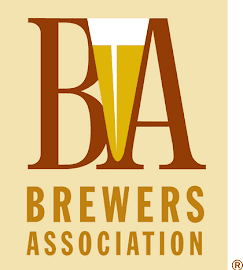An alert from the Virginia Wineries Association [I've redacted the original email.] ...
- In 1979, there were only 6 farm wineries in Virginia. In 1980, the Virginia General Assembly, under the Farm Winery Act, exempted farm wineries from the three-tier system of alcohol distribution. [This meant the wineries no longer were limited only] to sell through a wholesaler; they could self-distribute their products [as well].
Today, there are nearly 120 wineries across the Commonwealth. About one-third use wholesalers. But, without some form of self-distribution, many, if not most, of the smaller wineries will not be able to grow enough to attract a wholesaler to represent them.
[But] in 2006, the General Assembly took away wineries’ ability to self-distribute [- to sell directly to retailers and restaurants].
Wineries and wholesalers are both in the business of selling wine, but many wineries are at a disadvantage simply because of their size. They are small, family farms. The median sized winery in Virginia produces about 2,500 cases of wine per year. It is estimated that the impact on these family enterprises through the loss of self-distribution is as much as 30 to 40 percent lost sales annually. Thus under the current scenario, both [wholesalers and small Virginia wineries] stand to lose.
[But] if the cap for self-distribution were set at, say, 3000 cases, then it would be a win-win [scenario]. The wineries would be able to get their product to market --- and be able to sell it --- at a reasonable price with a reasonable profit. They could then grow to a size where they would be profitable for a distributor. The distributors wouldn’t be burdened with trying to market small customers instead of the more profitable large scale producers.
[As it stands now,] there will continue to be fewer choices of Virginia wines on the shelves and what you do find will carry a higher price. If self-distribution were restored, [there could be] a greater variety of wines at a lower cost.
The key bills to restore the right of wineries to self-distribute up to 3,000 cases of their product annually are HB2450 patroned by Delegate Chris Saxman from Staunton and SB1062 patroned by Senator John Watkins from Midlothian.
The other crucial area is restrictive land use issues. There are counties in Virginia that restrict the number of customers that a winery may invite to their tasting room. In some localities it is impossible to have a tasting room at all. Government needs to [partner] with wineries to establish commonsense regulations that will allow the wineries to be good business neighbors, while at the same time be able to draw enough visitors through special events to be profitable, and thus, be successful contributors to the Commonwealth’s bottom line.
The bills which can ensure that local governments work with wineries to establish commonsense land use regulations are HB2493 patroned by Delegate Dave Albo from Springfield and SB1205 patroned by Senator Emmett Hanger from Mt. Solon.
For more information:
Virginia Wineries Association
9661 Spotswood Trail
Stanardsville, Virginia 22973
resolved!










No comments:
Post a Comment
Comment here ...